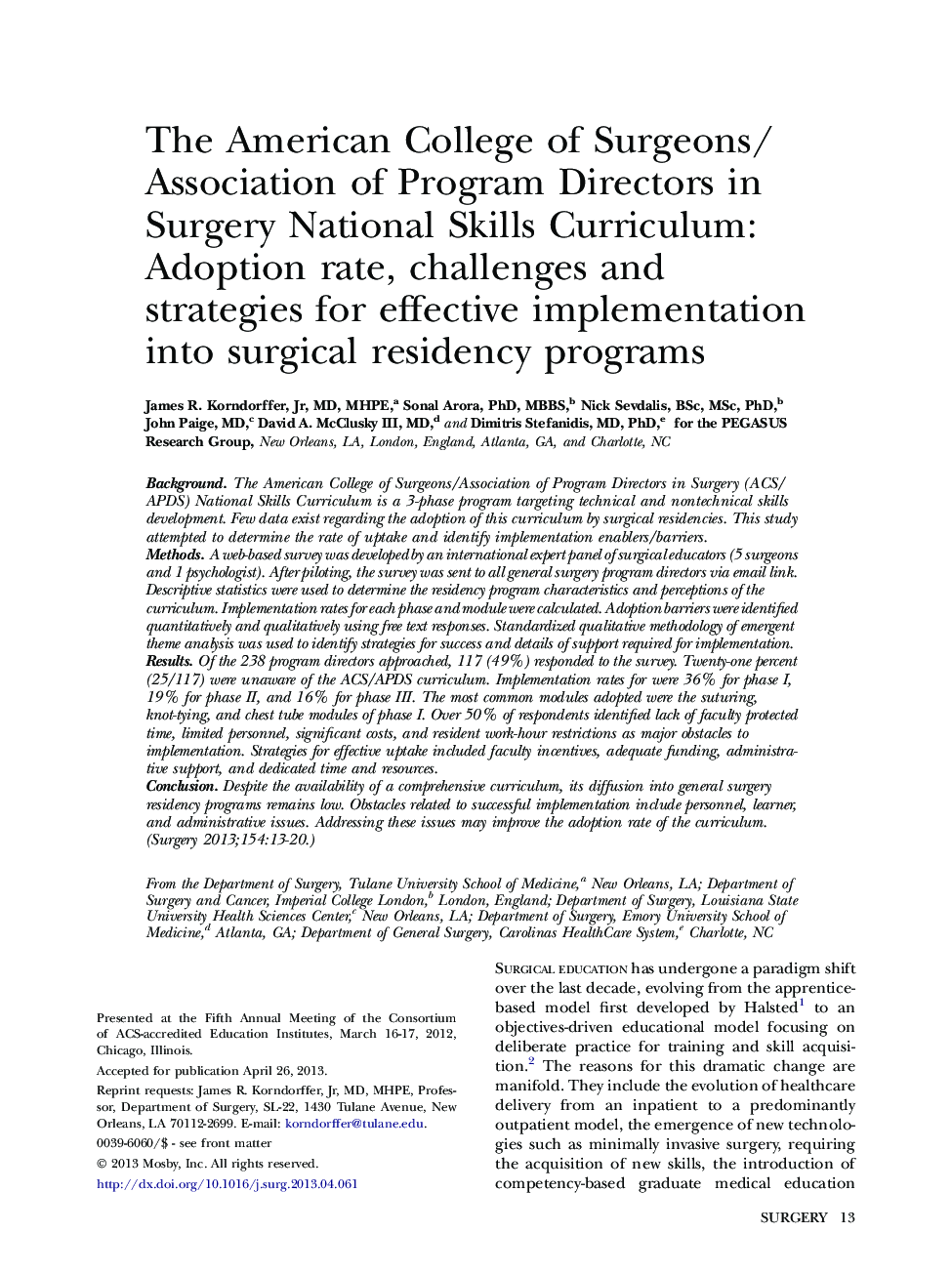| کد مقاله | کد نشریه | سال انتشار | مقاله انگلیسی | نسخه تمام متن |
|---|---|---|---|---|
| 4307340 | 1289246 | 2013 | 8 صفحه PDF | دانلود رایگان |

BackgroundThe American College of Surgeons/Association of Program Directors in Surgery (ACS/APDS) National Skills Curriculum is a 3-phase program targeting technical and nontechnical skills development. Few data exist regarding the adoption of this curriculum by surgical residencies. This study attempted to determine the rate of uptake and identify implementation enablers/barriers.MethodsA web-based survey was developed by an international expert panel of surgical educators (5 surgeons and 1 psychologist). After piloting, the survey was sent to all general surgery program directors via email link. Descriptive statistics were used to determine the residency program characteristics and perceptions of the curriculum. Implementation rates for each phase and module were calculated. Adoption barriers were identified quantitatively and qualitatively using free text responses. Standardized qualitative methodology of emergent theme analysis was used to identify strategies for success and details of support required for implementation.ResultsOf the 238 program directors approached, 117 (49%) responded to the survey. Twenty-one percent (25/117) were unaware of the ACS/APDS curriculum. Implementation rates for were 36% for phase I, 19% for phase II, and 16% for phase III. The most common modules adopted were the suturing, knot-tying, and chest tube modules of phase I. Over 50% of respondents identified lack of faculty protected time, limited personnel, significant costs, and resident work-hour restrictions as major obstacles to implementation. Strategies for effective uptake included faculty incentives, adequate funding, administrative support, and dedicated time and resources.ConclusionDespite the availability of a comprehensive curriculum, its diffusion into general surgery residency programs remains low. Obstacles related to successful implementation include personnel, learner, and administrative issues. Addressing these issues may improve the adoption rate of the curriculum.
Journal: Surgery - Volume 154, Issue 1, July 2013, Pages 13–20